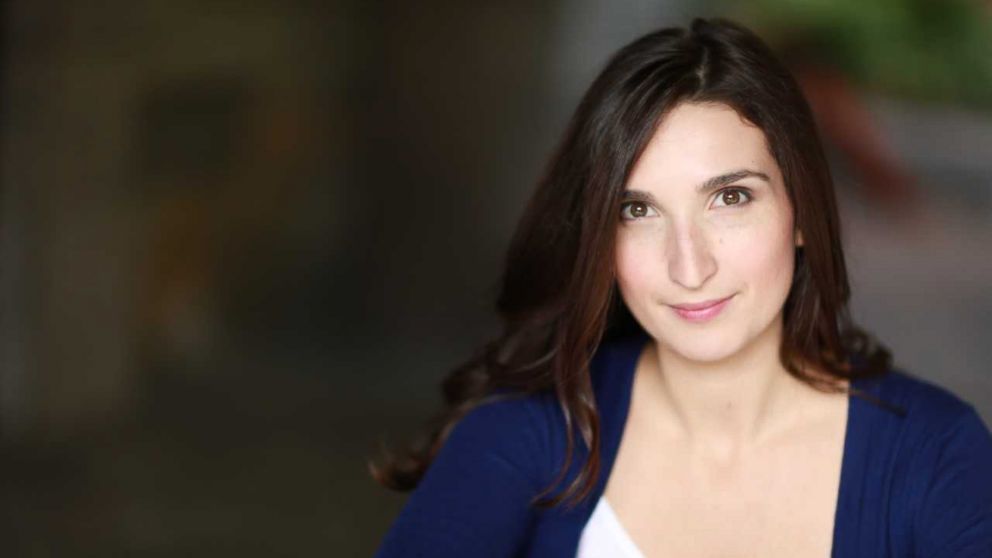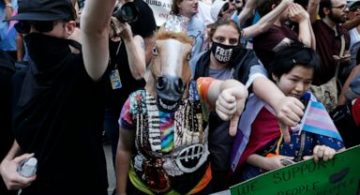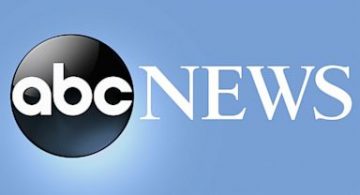
Dr. Christine Blasey Ford’s impassioned recollection of her alleged sexual assault by nominee Brett Kavanaugh before the Senate Judiciary Committee drove Skyler Barrett, a casting director, to dig into her contacts and rectify what she calls a “disconnect” between accusers and doubters.
Barrett channeled that concern into a documentary-style public service announcement, called “I Am Christine Blasey Ford,” featuring #MeToo activists and sexual assault survivors reading Ford’s testimony.
For so many around the country, Ford’s words reflected their own experiences with sexual harassment and assault.
Barrett said after seeing social media reactions to the Supreme Court hearings, she felt a disconnect among those who doubted Ford’s story, and she hopes to start a conversation to show just how pervasive “rape culture” is.
“I wanted to show people this affects people from every walk of life,” Barrett said.
Kavanaugh, who was confirmed by the Senate after those hearings despite protests, has vehemently denied all allegations.
Barrett selected a diverse group for this project, including a 13-year-old girl, three alleged Harvey Weinstein victims and a gay man.
Following the hearings, she immediately reached out to her friend Sarah Ann Masse to ask her to join as the project’s producer.
Masse, who last year held allegations of sexual misconduct against Weinstein, told ABC News she happily jumped on board as soon as she received the offer. Weinstein has denied all allegations of nonconsensual sex.
For someone who spoke out against a powerful abuser herself, Masse wants to use her platform to help bring about positive change.
“I think those of us in the entertainment profession have the unique ability to change culture because it’s shaped by the stories we tell,” she said.
On the day of filming, there was “a lot of crying, comforting and supporting,” Masse said. “It was a very healing and empowering space where you don’t have to explain yourself because there’s shared language, a shared experience.”
Though the majority of the group were women, many of whom Masse know personally, both she and Barrett stressed the importance of including men, who are often left out of the equation.
The trauma for male survivors is very real, Masse said.
“Sometimes their experiences may be different; being victimized as a man carries a lot of shame as well,” she said.
With the midterms elections less than a week away, Masse hopes the film reminds people, especially women, to vote.
“For some reason the issue of respecting women and believing survivors became a political issue and it shouldn’t be,” Barrett said.
The hostility comes from both sides and with this project, Masse hopes the powerful words recited by people from various backgrounds can open the eyes of those who don’t understand and show survivors they’re not alone.
Before the “Me Too” movement gained momentum, “Everything seemed to be swept under the rug,” Barrett said.
Raised by a single mother who was a victim of domestic abuse, Barrett said, “It’s important to keep this conversation going, to make workplaces and the world in general safer for women.” Citing her own experiences at film school and working on sets, she said the constant “misogyny was palpable.”
At the end of the 18-minute video each participant holds up a piece of paper that reads #BelieveSurvivors, while reciting “I am Christine Blasey Ford.”
The film premiered Thursday at the Female Filmmakers Fuse Festival in Pasadena, California.
What’s the one message the filmmakers want this film to get across?
“Listen,” Barrett answered.
“We’ve already been punished enough to have to live through [sexual assault],” said Masse. “So when people come forth to talk about something extremely painful, don’t vilify us. Listen to what we have to say and educate yourself on the facts.”





